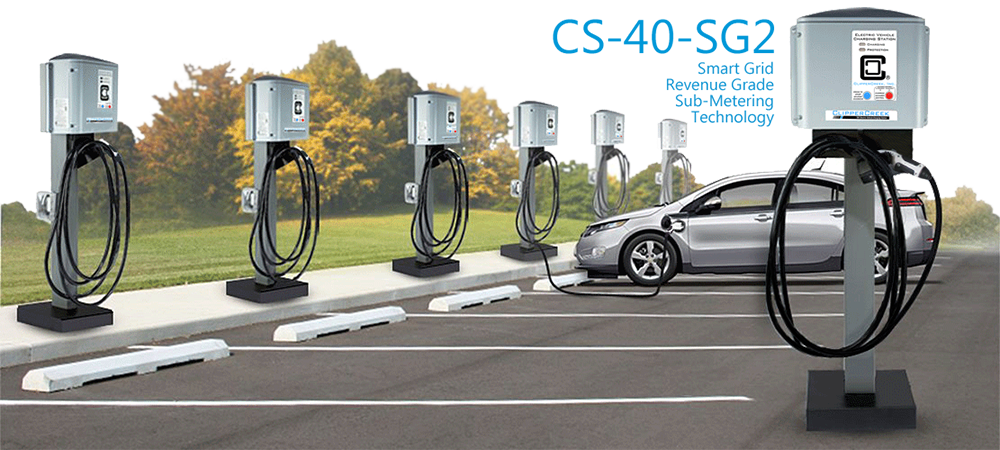A key bill had language allowing public utilities to enter into the electric vehicle charging industry—overlooked by the oil industry and a game-changer for EVs as it tackles one of their most formidable challenges.
"When California Governor Jerry Brown signed Senate Bill 350 on Oct. 7, it looked like a huge win for the oil industry," writes Mark Hertsgaard for Bloomberg BusinessWeek. "The original version of the bill included a mandate to cut the state’s petroleum consumption 50 percent by 2030.
The oil industry, having waged a vigorous campaign against the oil reduction mandate, celebrated in their victory of having the oil language removed. However, they overlooked another provision of the bill that was aimed at the same purpose.
The law requires the California Public Utilities Commission (CPUC) to solicit proposals from electric companies for "multiyear programs and investments to accelerate widespread transportation electrification to reduce dependence on petroleum."

Credit: Clipper Creek: Electric Vehicle Charging Stations
"The media was focused on the fight over cutting petroleum consumption by 50 percent, but this is going to do a lot of the same thing," says Laura Wisland of the Union of Concerned Scientists.
Here's why the language was a game-changer. "Until 2014, utilities were blocked from owning or operating any charging stations, a step regulators took to foster competition in the emerging market," writes Hertsgaard.
California’s three large private utilities, which were also involved in crafting the bill’s language, were pleased, too. The electric companies see a chance to grab a piece of the $55 billion the state’s drivers spend each year filling up. “We really need to have a big push for charging,” Tony Earley, chief executive officer of PG&E, said in an Oct. 15 appearance at San Francisco’s Commonwealth Club. “The charging station ought to be part of our grid infrastructure.”
The head of the Air Resources Board, and one of electric vehicles biggest boosters, Mary Nichols, "chuckles when asked why the oil companies didn’t try to block the electrification language in SB 350," notes Hertsgaard.
"Perhaps they should be asking their lobbyists that question,” she says. "I really can’t take credit for this.”
The two main parts of SB 350 were requiring utilities to generate 50 percent of electricity from renewable sources by 2030, known as the renewable portfolio standard, and doubling energy efficiency standards in buildings by the same year.
Assisting Mark Hertsgaard in writing the article were Mark Chediak, Lynn Doan, and James Nash.
FULL STORY: Big Electric Shocks Big Oil

Planetizen Federal Action Tracker
A weekly monitor of how Trump’s orders and actions are impacting planners and planning in America.

Chicago’s Ghost Rails
Just beneath the surface of the modern city lie the remnants of its expansive early 20th-century streetcar system.

Amtrak Cutting Jobs, Funding to High-Speed Rail
The agency plans to cut 10 percent of its workforce and has confirmed it will not fund new high-speed rail projects.

Ohio Forces Data Centers to Prepay for Power
Utilities are calling on states to hold data center operators responsible for new energy demands to prevent leaving consumers on the hook for their bills.

MARTA CEO Steps Down Amid Citizenship Concerns
MARTA’s board announced Thursday that its chief, who is from Canada, is resigning due to questions about his immigration status.

Silicon Valley ‘Bike Superhighway’ Awarded $14M State Grant
A Caltrans grant brings the 10-mile Central Bikeway project connecting Santa Clara and East San Jose closer to fruition.
Urban Design for Planners 1: Software Tools
This six-course series explores essential urban design concepts using open source software and equips planners with the tools they need to participate fully in the urban design process.
Planning for Universal Design
Learn the tools for implementing Universal Design in planning regulations.
Caltrans
City of Fort Worth
Mpact (founded as Rail~Volution)
City of Camden Redevelopment Agency
City of Astoria
City of Portland
City of Laramie




























